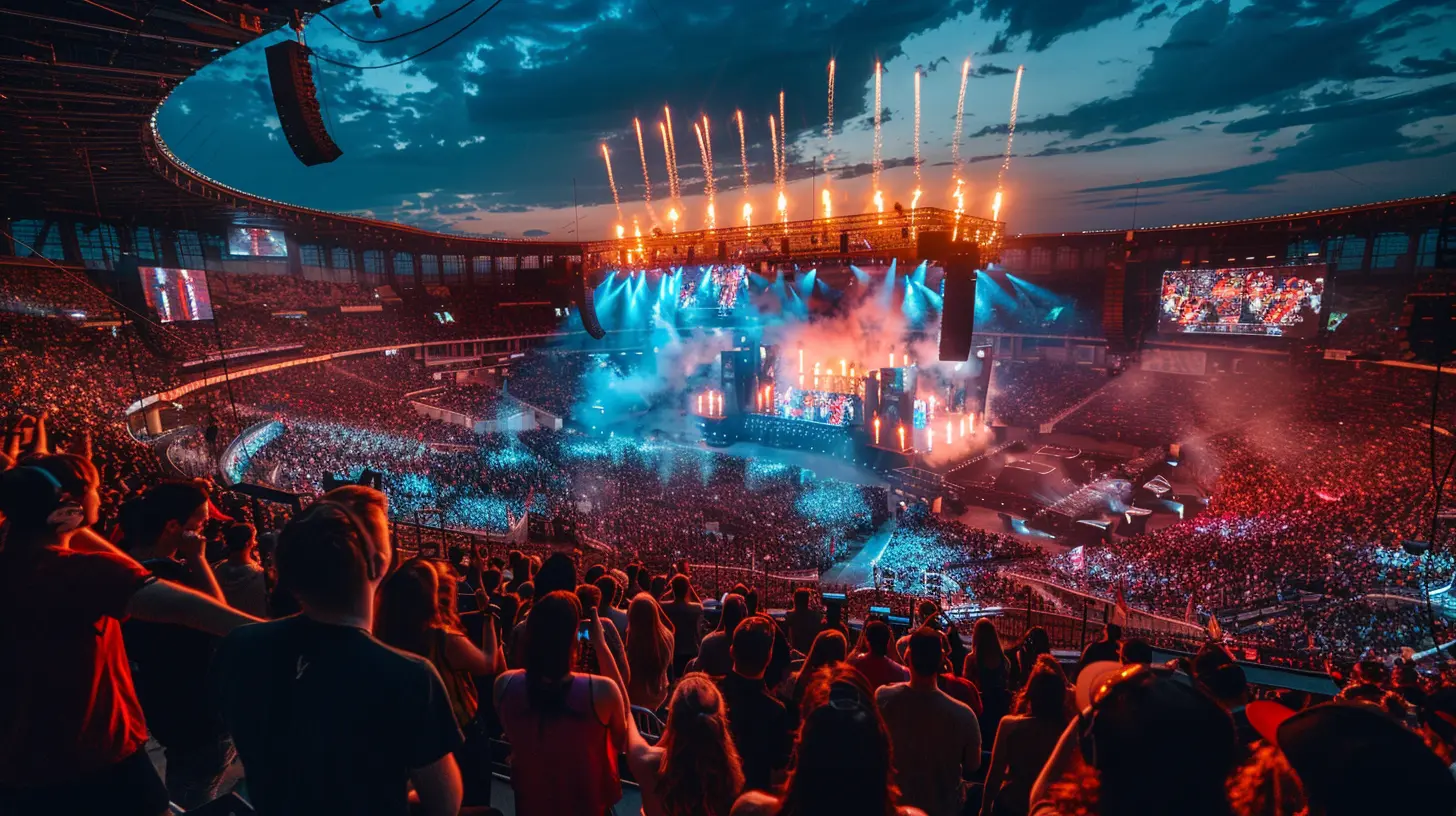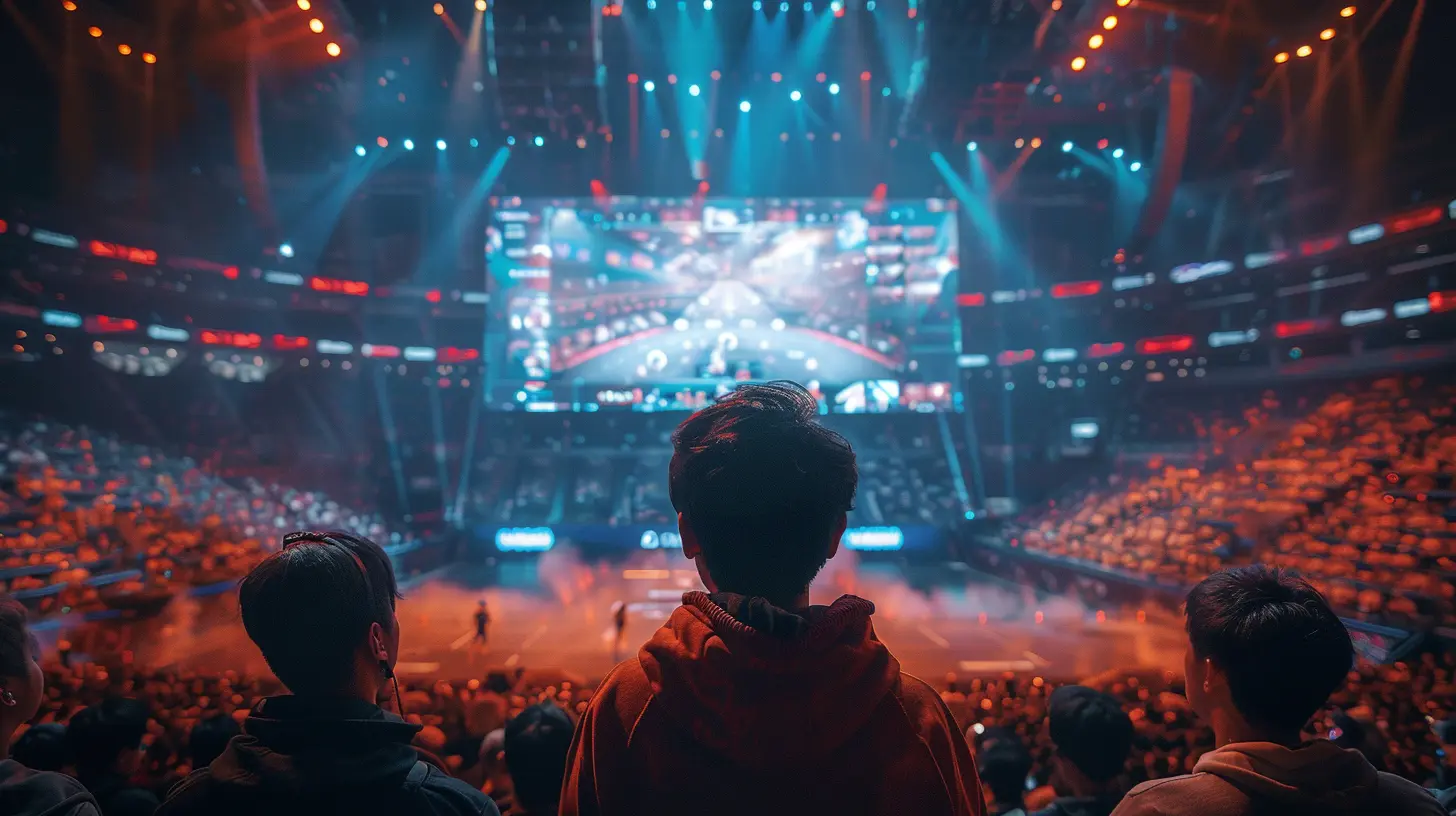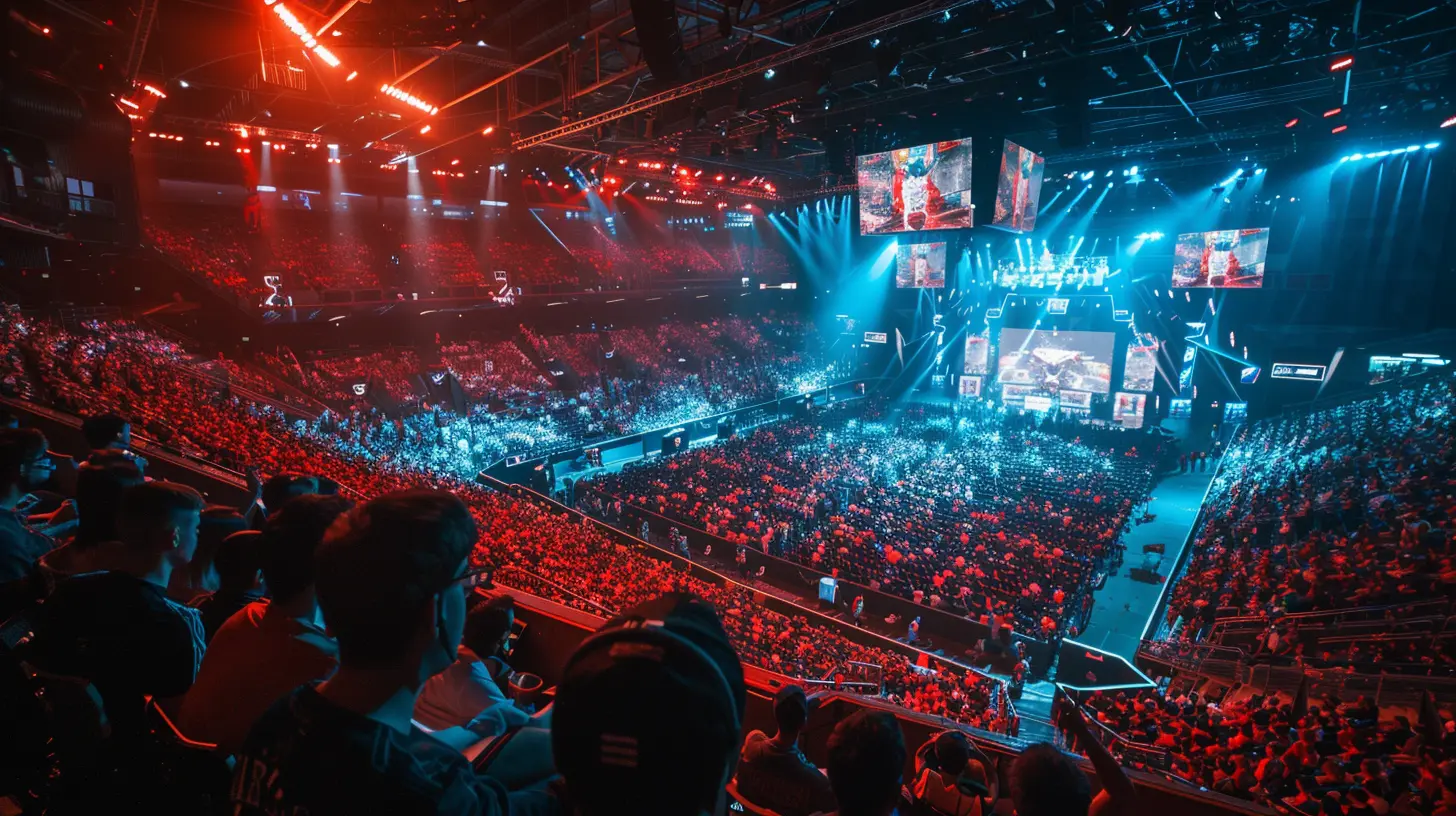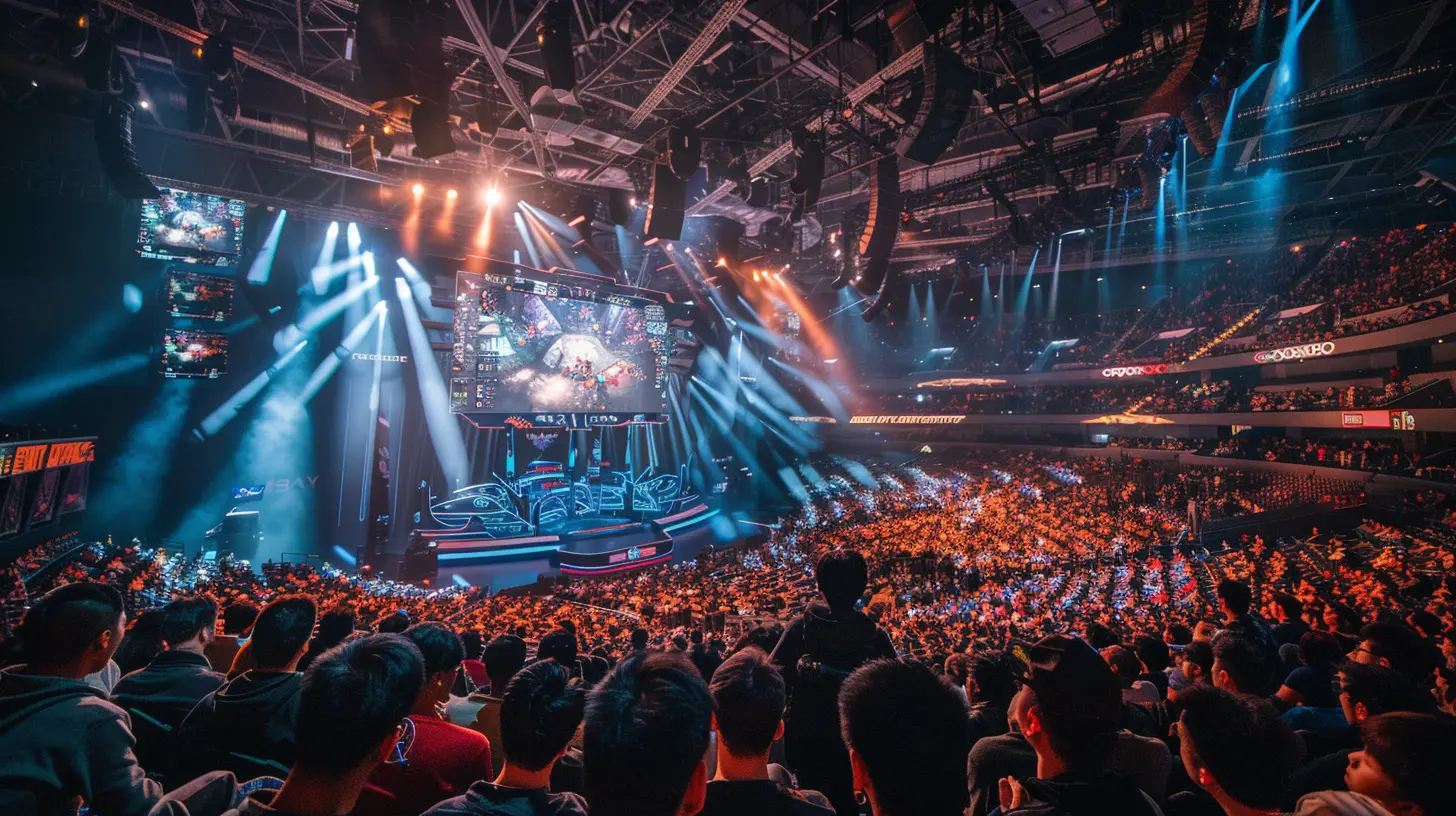The Future of Esports in the Olympic Movement
18 November 2025
Esports has skyrocketed in popularity over the past decade, becoming a global phenomenon with millions of passionate fans and professional players. But the big question remains—will esports ever become a permanent part of the Olympic Games?
The relationship between esports and the Olympic movement has seen its fair share of skepticism and support, but one thing is clear: digital competition isn't going anywhere. In fact, it’s growing at an unprecedented rate. So, what does the future hold for esports in the Olympics? Let's dive into this fascinating debate. 
A Changing Sports Landscape
Traditionally, the Olympics have celebrated physical excellence, bringing together the world's most talented athletes. But sports as we know them are evolving. If skateboarding, surfing, and sport climbing have made their way onto the Olympic stage, why can’t esports?The International Olympic Committee (IOC) has acknowledged the massive impact of digital sports. Events like the Olympic Virtual Series (launched in 2021) and the Olympic Esports Week (held in 2023) signal a shift toward embracing competitive gaming.
But the road to full Olympic inclusion isn’t that simple. 
Challenges Esports Faces in the Olympic Movement
While esports is growing rapidly, several challenges must be addressed before it can claim a permanent Olympic status.1. Defining "Sport" in the Olympic Context
The IOC has strict criteria for what qualifies as a sport. Traditional athleticism plays a significant role in their selection process. Since esports relies more on mental agility, reflexes, and strategy rather than physical endurance, critics argue it doesn't fit within the Olympic framework.However, if we look at sports like chess and shooting—both of which rely heavily on mental and technical precision—esports undeniably deserves a seat at the table.
2. Standardization and Governance Issues
Unlike traditional sports, which are governed by international federations, esports is fragmented. Various developers own different games, and there is no single governing body that regulates esports globally.The IOC typically works with international federations that standardize rules and organize competitions fairly. Without a unified governing entity, esports lacks the structure needed to fit seamlessly into the Olympic model.
3. Game Selection and Longevity
Another hurdle is selecting which games should be included. Unlike traditional sports that have existed for centuries, video games evolve rapidly. What’s popular today might be obsolete in five years.For instance, should the Olympics focus on strategy-based games like League of Legends and Dota 2? Or should they lean toward sports simulations like FIFA and NBA 2K, which have a closer resemblance to traditional sports?
Choosing the right titles and ensuring they remain relevant over time is a significant challenge.
4. Violence in Games
One of the most controversial debates in esports' Olympic integration revolves around violent content. Many popular esports titles, like Counter-Strike: Global Offensive and Call of Duty, involve gunplay and combat.The IOC has been hesitant to endorse games that promote violence, which raises concerns about what kinds of esports will be deemed “Olympic-worthy.” Sports simulations like FIFA and Gran Turismo have the highest chance of inclusion since they align with traditional sporting values. 
The Case for Esports in the Olympics
Despite these challenges, there are strong reasons why esports should and will likely join the Olympic movement.1. Massive Global Appeal
Esports has an audience that rivals traditional sports. According to estimates, esports viewership might surpass 640 million by 2025. That’s nearly on par with audiences for events like the FIFA World Cup and the Super Bowl.The Olympic Games aim to attract younger audiences, and esports is the perfect vehicle. With younger demographics showing more interest in digital competitions than traditional sports, integrating esports may be essential for keeping the Olympics relevant for future generations.
2. Athleticism in Esports Isn’t Just Physical
The argument that esports lacks physical exertion overlooks the intense mental and cognitive skills required to compete at a professional level. Like Formula 1 drivers or chess grandmasters, esports players need extraordinary reflexes, quick decision-making abilities, and endurance to succeed.Hand-eye coordination, reaction speeds, and mental stamina all play a role—pushing esports professionals to their limits, much like any Olympic athlete.
3. The IOC Is Already Making Moves
Esports’ journey toward the Olympics isn’t just speculation. The IOC has made direct efforts to bring esports under its umbrella.- Olympic Virtual Series (2021) – The IOC’s first official attempt to integrate esports, featuring virtual versions of traditional sports.
- Olympic Esports Week (2023) – A global competition featuring digital and virtual sports, showcasing esports’ growing presence in the Olympic space.
- Collaborations with Game Developers – The IOC has worked with companies like Intel and major game publishers to explore esports’ potential in the Olympic Games.
Each of these steps signals that the future of esports in the Olympic movement is closer than ever. 
What the Future Holds
A Separate Esports Category?
Some experts suggest that instead of fully merging esports into the Summer or Winter Games, the Olympics could create a dedicated Esports Olympics. This idea isn’t far-fetched—it mirrors the Paralympics and Youth Olympics, which focus on specific athlete groups.Having a dedicated esports event under the IOC's umbrella would allow competitive gaming to thrive without being forced into the traditional Olympic mold.
Fully Integrated by 2030?
While esports won’t become a full-fledged Olympic sport overnight, the momentum is building. By 2030, we might see esports disciplines included as medal events, particularly in sports simulation games.The key will be continued collaboration between the IOC, game publishers, and esports organizations to create a structured, fair, and globally recognized format.
A New Era for the Olympics
Whether traditionalists like it or not, esports is reshaping the global sports culture. The Olympic Games, as a beacon of international competition, cannot afford to ignore this shift.The future of esports in the Olympic movement isn’t a question of "if" but rather "when" and "how." With millions of young fans rallying behind competitive gaming, and with proper governance and cooperation, we may witness an era where digital athletes stand alongside their traditional counterparts on the grandest sporting stage.
The evolution of sports is inevitable, and esports is leading that charge. The only question is: Are the Olympics ready to embrace it?
all images in this post were generated using AI tools
Category:
OlympicsAuthor:

Onyx Frye
Discussion
rate this article
1 comments
Mae Abbott
I'm fascinated by how esports could evolve within the Olympic framework! What challenges will athletes face in this transition, and how might traditional sports adapt to this digital revolution? Exciting times ahead!
November 18, 2025 at 4:51 AM

Onyx Frye
Thank you for your thoughts! Athletes may face challenges such as differing training regimens and recognition of skill sets compared to traditional sports. Traditional sports might adapt by incorporating esports elements, focusing on inclusivity, and embracing technology to engage younger audiences. Exciting indeed!


